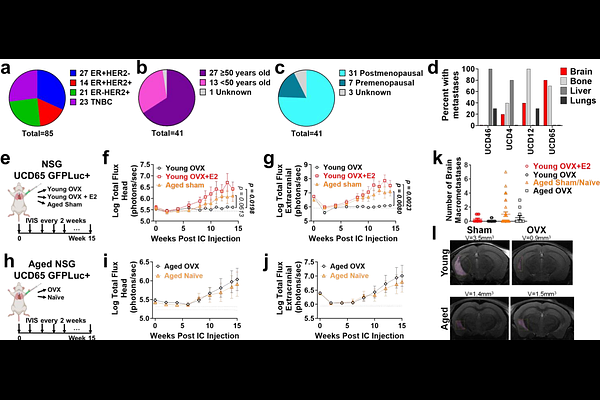Brain FGF2 and NCAM1 contribute to FGFR1-dependent progression of ER+ breast cancer brain metastases in young and aged hosts

Brain FGF2 and NCAM1 contribute to FGFR1-dependent progression of ER+ breast cancer brain metastases in young and aged hosts
Fox, M. S.; Jaramillo-Gomez, J. A.; Marquez-Ortiz, R. A.; Alvarez-Eraso, K. L. F.; Contreras Zarate, M. J.; Koliavas, S.; Kabos, P.; Serkova, N. J.; Sartorius, C. A.; Wellberg, E. A.; Cittelly, D. M.
AbstractEstrogen receptor positive (ER+) breast cancer (BC) represents a significant proportion of BC brain metastasis (BCBM) but remains understudied. Here, we report that FGFR1-amplification, a well-established driver of ER+ BC endocrine resistance, promotes ER+ BCBM colonization in young and aged mice, through brain-dependent mechanisms. FGFR1-dependent brain colonization in young and aged mice occurs via canonical FGF2/FGFR1 signaling and non-canonical NCAM1/FGFR1 interactions. Astrocytic FGF2-mediated paracrine activation of FGFR1 promoted BCBMs in estrogen-treated young mice, but FGF2 signaling decreased in the brain with aging and estrogen-depletion. Neuronal and glial NCAM1, which remain unchanged in young and aged brains, promoted adhesion to neurons and migration of ER+ BC cells, suggesting that interactions with astrocytes and neurons facilitate early ER+ BCBM colonization through FGFR1. Importantly, FDA-approved FGFR inhibitors effectively blocked early but not late metastatic progression only in young mice, suggesting limited efficacy of FGFR inhibitors to block non-canonical FGFR1 functions in vivo.